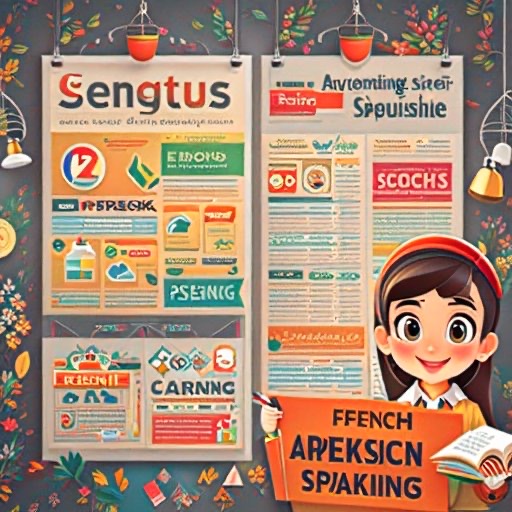
Discover timeless elegance at exclusive discounts!

The Advantages of Learning French with Audiobooks
Learning French with Audiobooks
$89.99$85.99
Audiobooks offer a dynamic and immersive way to learn French, combining the benefits of listening comprehension, pronunciation practice, and contextual vocabulary acquisition. Unlike traditional textbooks, audiobooks expose learners to authentic speech patterns, accents, and intonations, which are crucial for mastering conversational fluency. Many French-language audiobooks are narrated by native speakers, allowing learners to absorb correct pronunciation and rhythm naturally. Additionally, audiobooks can be enjoyed passively during commutes, workouts, or downtime, making them a convenient tool for busy learners. This flexible, engaging approach bridges the gap between formal study and real-world language use.
Choosing the Right French Audiobooks for Your Level
Selecting audiobooks tailored to your proficiency level is key to effective learning. Beginners may benefit from simplified stories, children’s books, or language-learning titles with built-in translations and pauses for repetition. Intermediate learners can explore young adult novels, short stories, or audiobooks with slower narration. Advanced learners might challenge themselves with classic French literature, podcasts, or full-speed contemporary novels. Platforms like Audible, LingQ, and Pimsleur offer curated French audiobook collections with adjustable playback speeds and supplementary materials. Matching content to your skill level ensures steady progress without frustration.
Enhancing Retention with Active Listening Techniques
Passive listening alone won’t maximize fluency—active engagement is essential. Techniques like shadowing (repeating phrases aloud), note-taking on unfamiliar words, and summarizing chapters in French reinforce comprehension and memory. Many learners pair audiobooks with physical or digital texts to follow along, improving reading and listening skills simultaneously. Re-listening to difficult sections, using bookmarks for key vocabulary, and discussing content with language partners or tutors deepen understanding. Structured repetition and multisensory learning (hearing + reading + speaking) create stronger neural connections, accelerating mastery.
Supplementing Audiobooks with Other Learning Tools
While audiobooks excel at auditory learning, combining them with other resources creates a well-rounded approach. Flashcard apps (Anki, Quizlet) can reinforce vocabulary from audiobooks, while grammar guides clarify structural rules encountered in context. Language exchange platforms (Tandem, HelloTalk) let learners practice speaking with native French speakers about audiobook content. Watching French films or YouTube channels with subtitles complements audiobook training by honing visual and auditory processing. This hybrid method addresses all language competencies: listening, speaking, reading, and writing.
The Long-Term Benefits of Audiobook-Based Learning
Consistent exposure to French through audiobooks builds endurance for real-life conversations, podcasts, and media. Learners develop an intuitive grasp of idioms, slang, and cultural references often absent in textbooks. Over time, the brain adapts to processing spoken French at natural speeds, reducing reliance on translation. Audiobooks also foster a love for Francophone culture, motivating continued study through engaging narratives. For travelers, professionals, or exam takers, this method cultivates confidence and adaptability in diverse linguistic settings. By integrating audiobooks into daily routines, learners can achieve fluency organically and enjoyably.
Grace
Purpose
